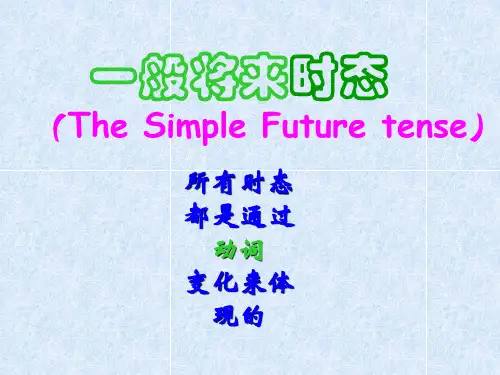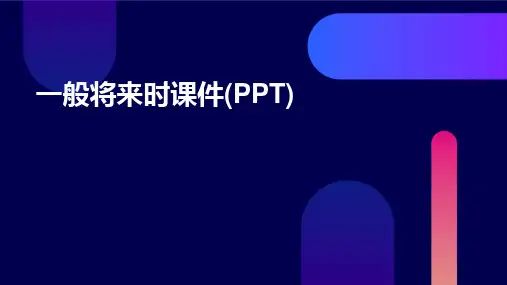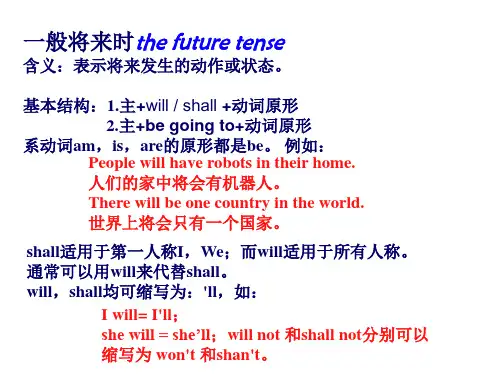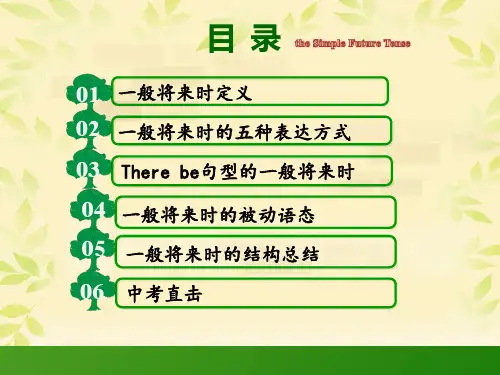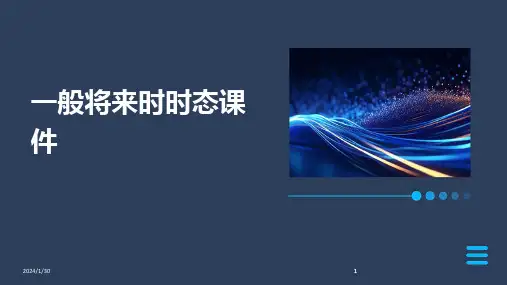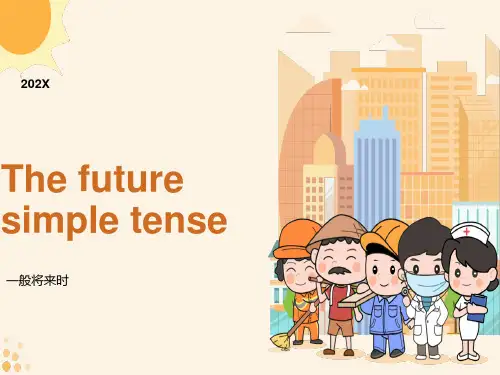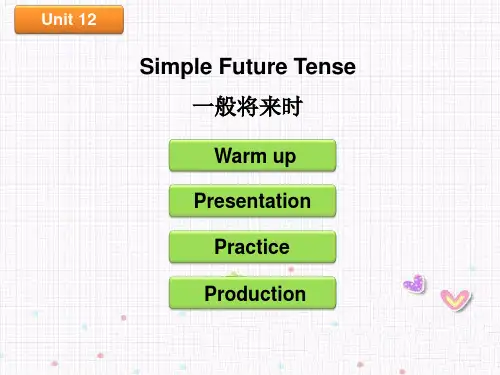另外,在时间状语或条件状语从句中,若主句用了将 来时,从句则用一般现在时。
01
课堂专项训练题:
02
、单选题:
1. _A_r_e__you __g_o__in__g_t_o__baedoctor when you
grow up?
A. Will; going to be B. Are; going to be
一般将来时表示将 要发生的动作或存 在的状态以及计划、 打算做某事。
E.g. They will have a football match tomorrow.
He will be thirty next week.
She is going to buy a coat this afternoon.
在进行时表示安排和计划或即将发生的动作。
• 我们明天动身去青岛.
• We’re leaving for Qingdao.
6.表示与生日,日历,课时安排或交通时刻表有关的动 作(一种规律) ,用一般现在时表示将来时态
• 常用于转移动词如:
• begin, come , leave, go, arrive, start, stop, return, open, close…
• The evening class begins at 19:00. • 火车两点出发. • The train starts at two.
01 注:在时间或条件状语从句中,从句用一般现在时表示将来 时:when, as soon as,
02 before, once, if , unless, even if, in case If you come this morning, we will
E.g. He is going to visit his friends. 还表示某种迹象表明会发生某事。 E.g. Look at the clouds. It’s going to rain. 而“Will+动词原形 ”指对将来事物的预见、表
